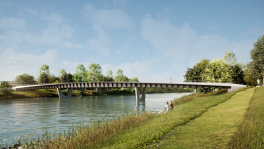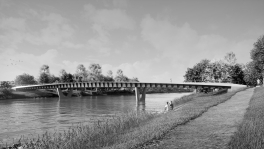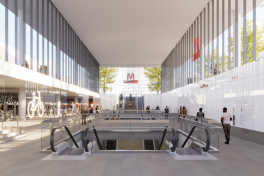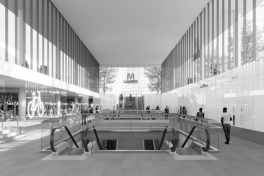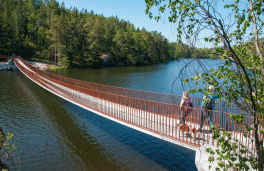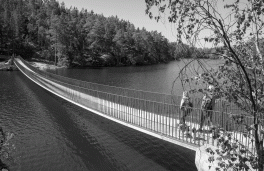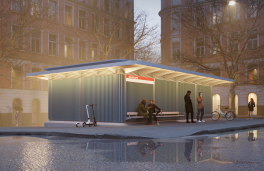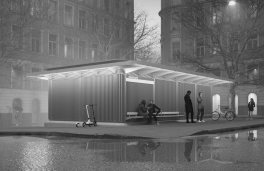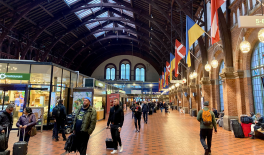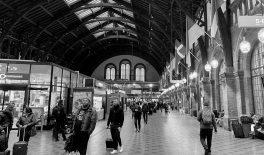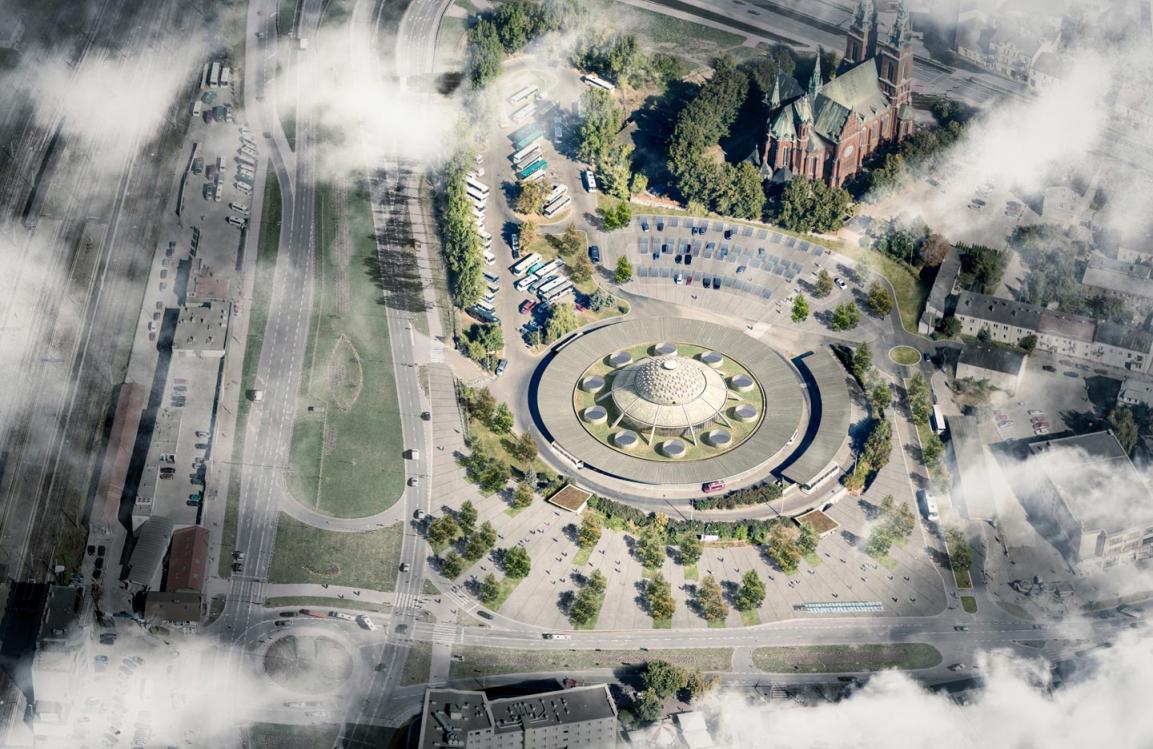
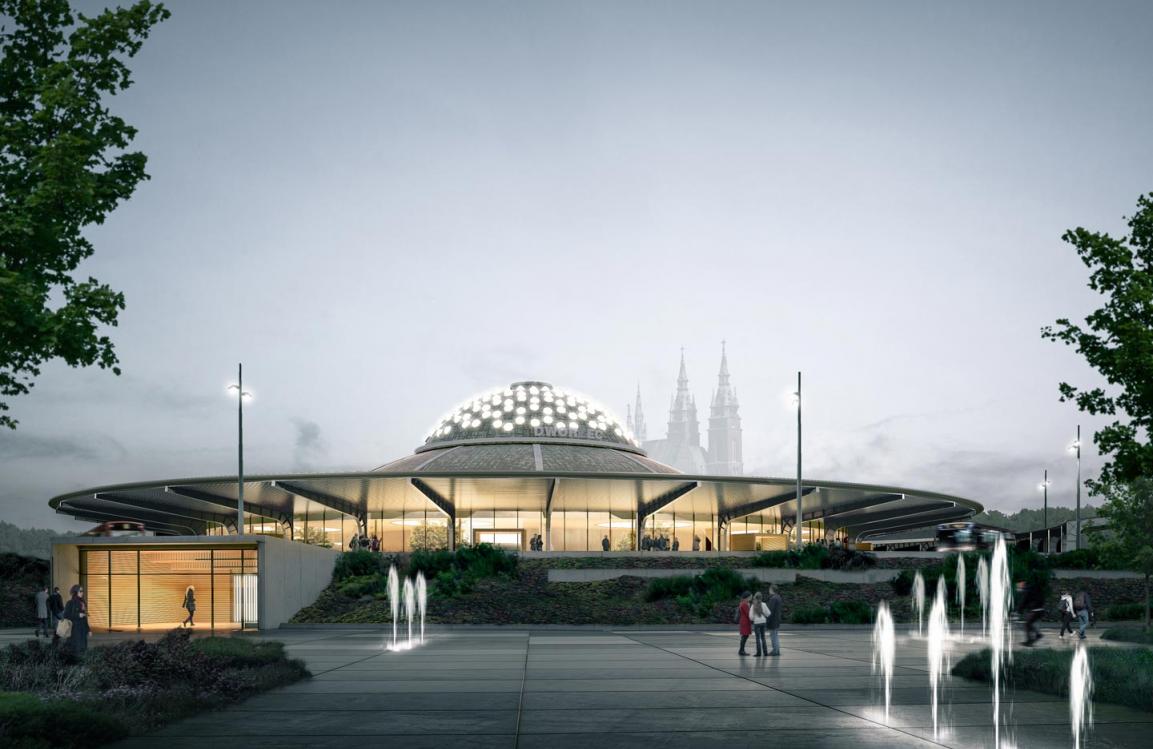
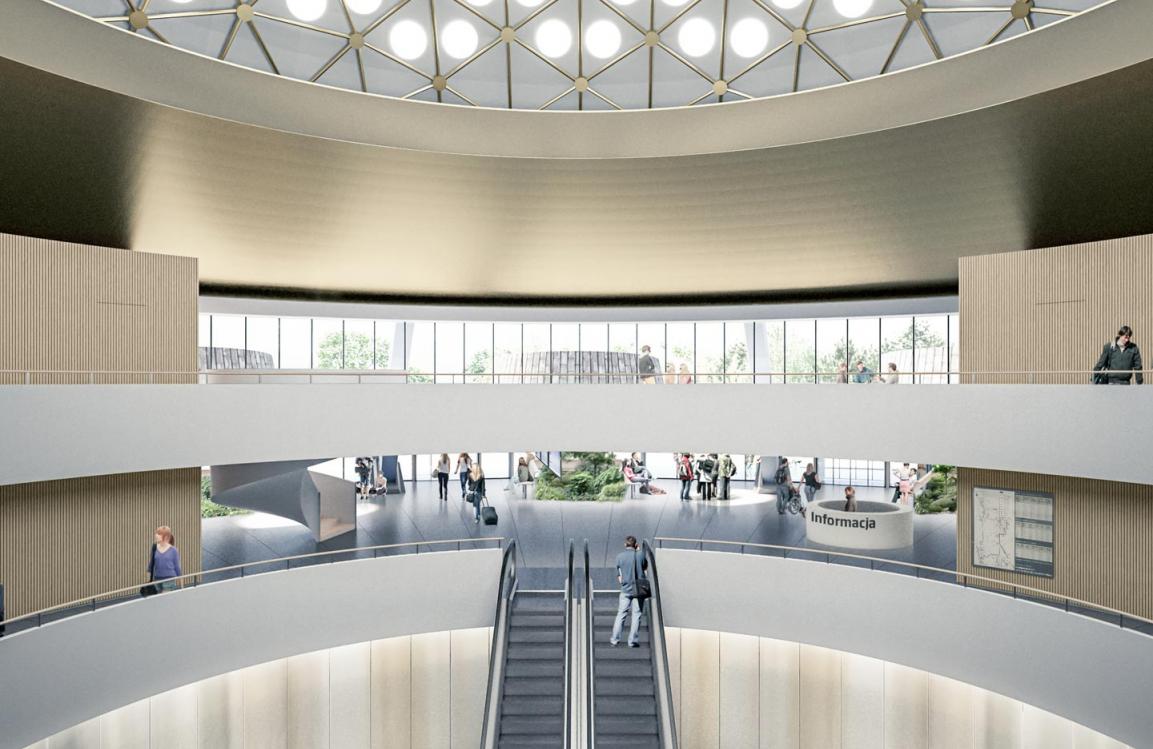
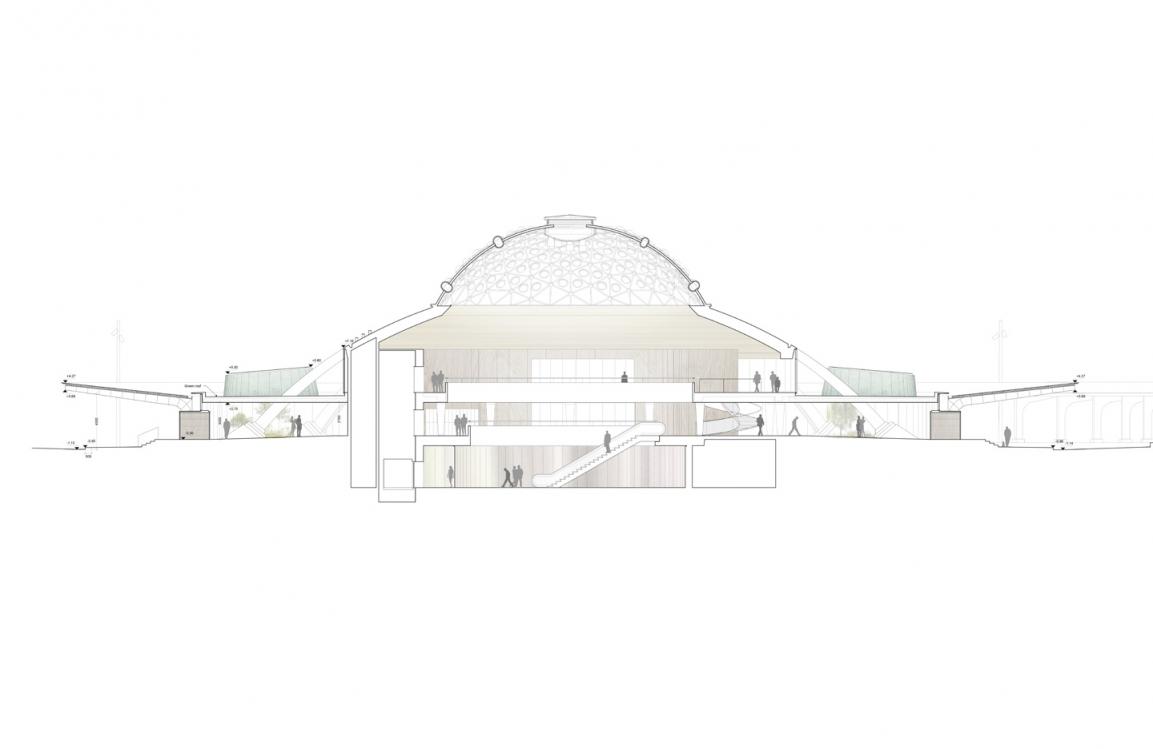
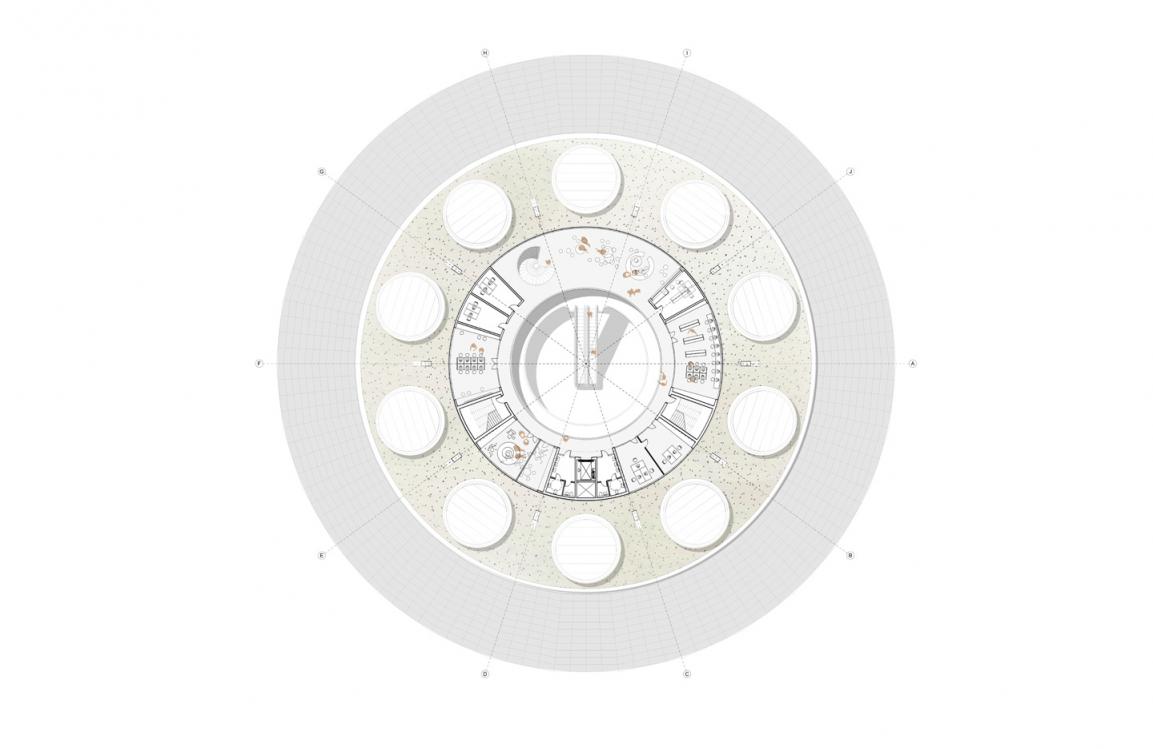
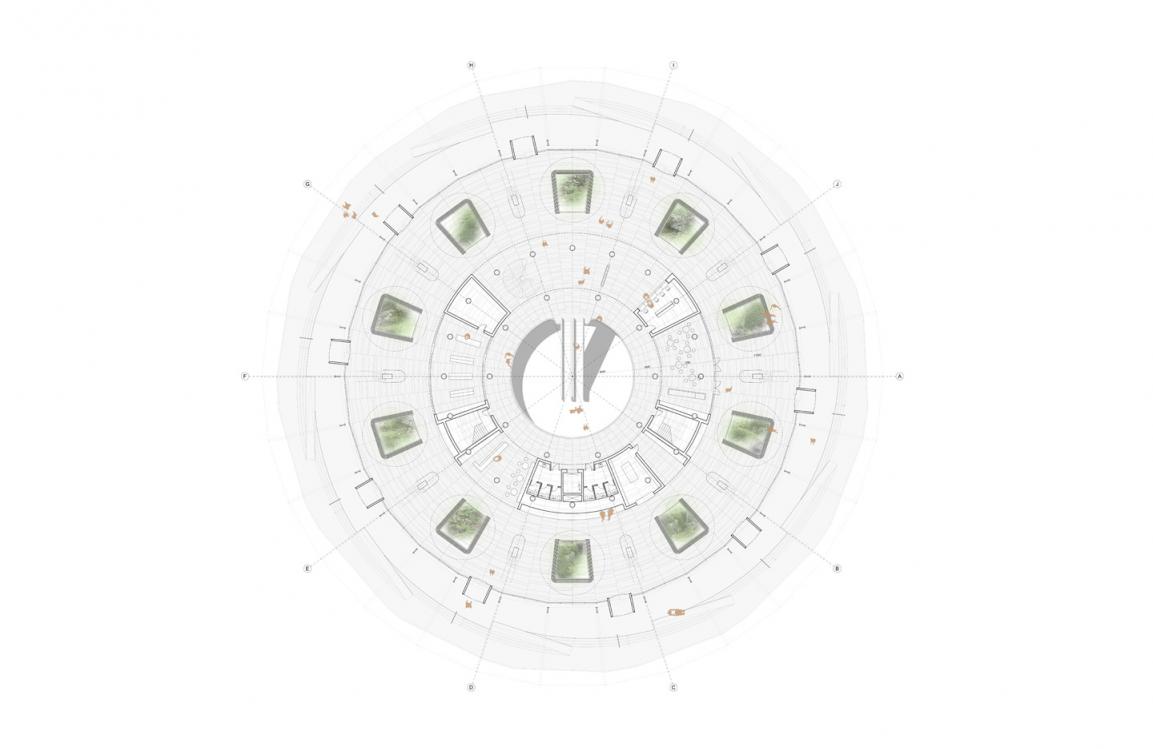
Gottlieb Paludan Architects runner up in Kielce, Poland
13.01.2017As the only non-Polish participant, Gottlieb Paludan Architects has drawn up a competition proposal to renovate and redesign the iconic bus terminal in the centre of Kielce. Gottlieb Paludan Architects was honored with a second prize, while a local architect was declared the winner.
The bus terminal dates back to the 1970s, where it was designed by the polish architect, Edward Modrzejewski. When the station opened in 1984, it was considered highly advanced as it was designed to accommodate 1500 busses and approximately 24,000 passengers daily. Owing to the bus terminals resemblance with an UFO, it has become a tourist attraction and a landmark of Kielce.
The aim of Gottlieb Paludan Architects’ proposal was to accentuate and preserve the inherent architectural qualities of the Kielce bus station while at the same time improving the technical and functional qualities of the iconic traffic hub. GPA suggests that this could be achieved by opening up the structure and removing unnecessary building components as well as obsolete functions. This would improve accessibility, legibility and safety for passengers and allows for a more flexible and up-to-date use of the bus station. The proposal’s overall approach was to strip back the existing constructions where needed and possible and to renovate and extend very gently, respecting the DNA of the original architectural constructions.
GPA’s proposal also connects the lower level access ways with the upper level and the unique cupola, which creates an attractive arrival space for all passengers. The existing gardens and covered walkways between the outside buttresses are reinterpreted and extended to create a coherent and covered waiting area with green gardens under large circular skylights. This results in ample, pleasant and modern waiting conditions with a good view of the outside traffic.
The jury described GPA’s proposal as “a work characterized by brave decisions in creating new public spaces by the use and evaluation of the terminal's function and its potential”.

